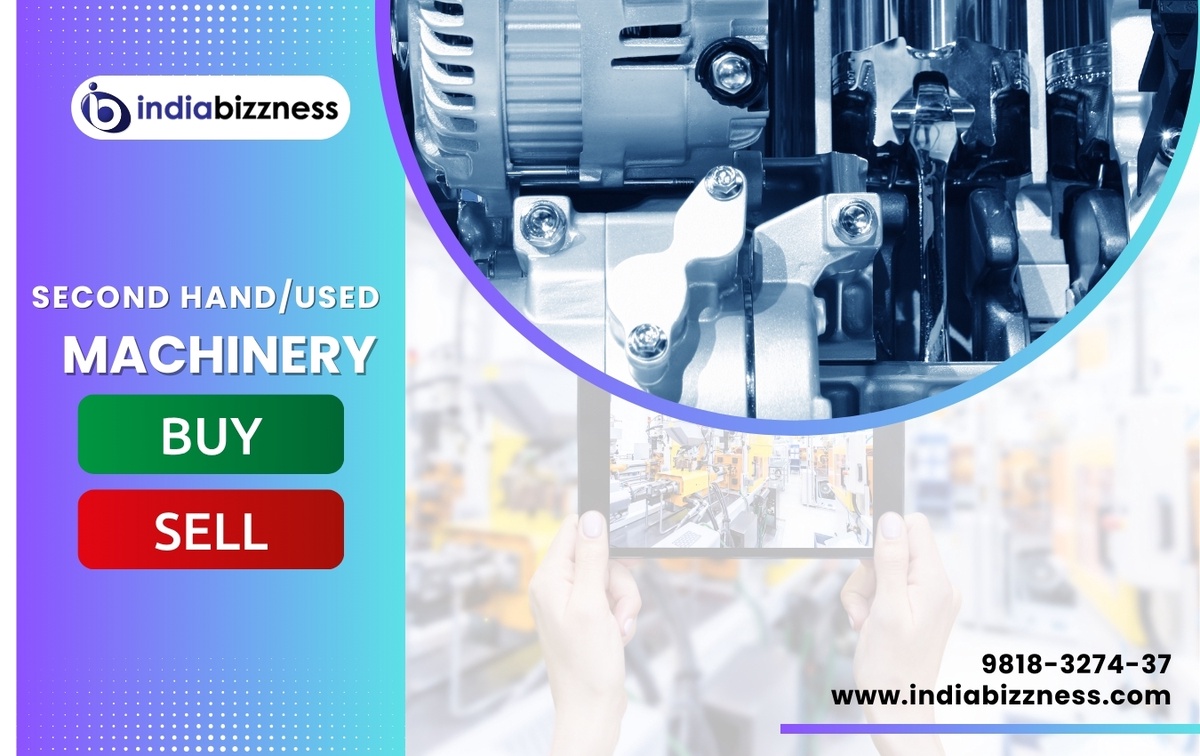Thinking about investing in second-hand imported machinery? It's a decision that requires careful consideration, as there are both advantages and disadvantages to weigh. In this comprehensive guide, we'll navigate through the various aspects to help you make an informed choice.
Understanding Second Hand Imported Machinery
Before diving into the pros and cons, let's clarify what we mean by second-hand imported machinery. These are industrial machines or equipment that have been previously owned and used in another country before being brought into your local market.
The Pros of Second Hand Imported Machinery
Cost-Effectiveness: One of the most significant advantages of opting for second-hand imported machinery is cost-effectiveness. These machines are often available at a fraction of the cost of brand new ones, making them an attractive option for businesses operating on a high budget.
Availability of High-Quality Equipment: Contrary to popular belief, second-hand imported machinery can offer high-quality performance. Many of these machines are sourced from countries with advanced manufacturing standards, ensuring reliability and efficiency.
Diverse Range of Options: Imported machinery opens up a world of possibilities, providing access to a diverse range of equipment that may not be readily available in the local market. This allows businesses to find the perfect fit for their specific needs, whether it's a specialized tool or a large-scale industrial machine.
Reduced Lead Times: Purchasing second-hand imported machinery can significantly reduce lead times compared to ordering new equipment. With the machine already in the country, businesses can avoid lengthy waiting periods and expedite their operational processes.
Sustainable Practices: Opting for second-hand machinery promotes sustainability by giving existing equipment a new lease on life. Instead of contributing to manufacturing demand and resource depletion, businesses can support a circular economy by reusing and repurposing machinery.
The Cons of Second Hand Imported Machinery
Limited Warranty and Support: One of the primary concerns with second-hand imported machinery is the limited warranty and after-sales support. Unlike new equipment, which often comes with comprehensive warranties and access to technical assistance, used machinery may have limited coverage and support options.
Potential for Hidden Issues: While many second-hand imported machines are in excellent condition, there's always a risk of hidden issues or wear and tear that may not be immediately apparent. Without a thorough inspection and assessment, businesses could encounter unexpected maintenance costs or operational disruptions.
Compliance and Regulation Challenges: Navigating the regulatory landscape can be challenging when dealing with imported machinery, especially if it doesn't meet local standards or requirements. Businesses must ensure that the equipment complies with safety regulations, emission standards, and other relevant guidelines to avoid legal issues.
Language and Documentation Barriers: Dealing with second-hand imported machinery often involves communication barriers due to language differences and unfamiliar documentation. Businesses may encounter challenges in understanding operating manuals, technical specifications, or communicating with overseas sellers or suppliers.
Read more: Tips for Buy Used Imported Printing Machinery | Used Plastic Machinery Equipment Sale
Conclusion
Investing in second-hand imported machinery can be a viable option for businesses seeking cost-effective solutions and access to a diverse range of equipment. However, it's essential to carefully weigh the pros and cons to mitigate risks and make informed decisions. By considering factors such as cost-effectiveness, equipment quality, warranty coverage, regulatory compliance, and communication challenges, businesses can navigate the complexities of second-hand machinery procurement effectively. With proper due diligence and attention to detail, businesses can harness the benefits of imported machinery while minimizing potential drawbacks.
Source: https://sites.google.com/view/indiabizznessb2b/blog/pros-cons-of-second-hand-imported-machinery


No comments yet